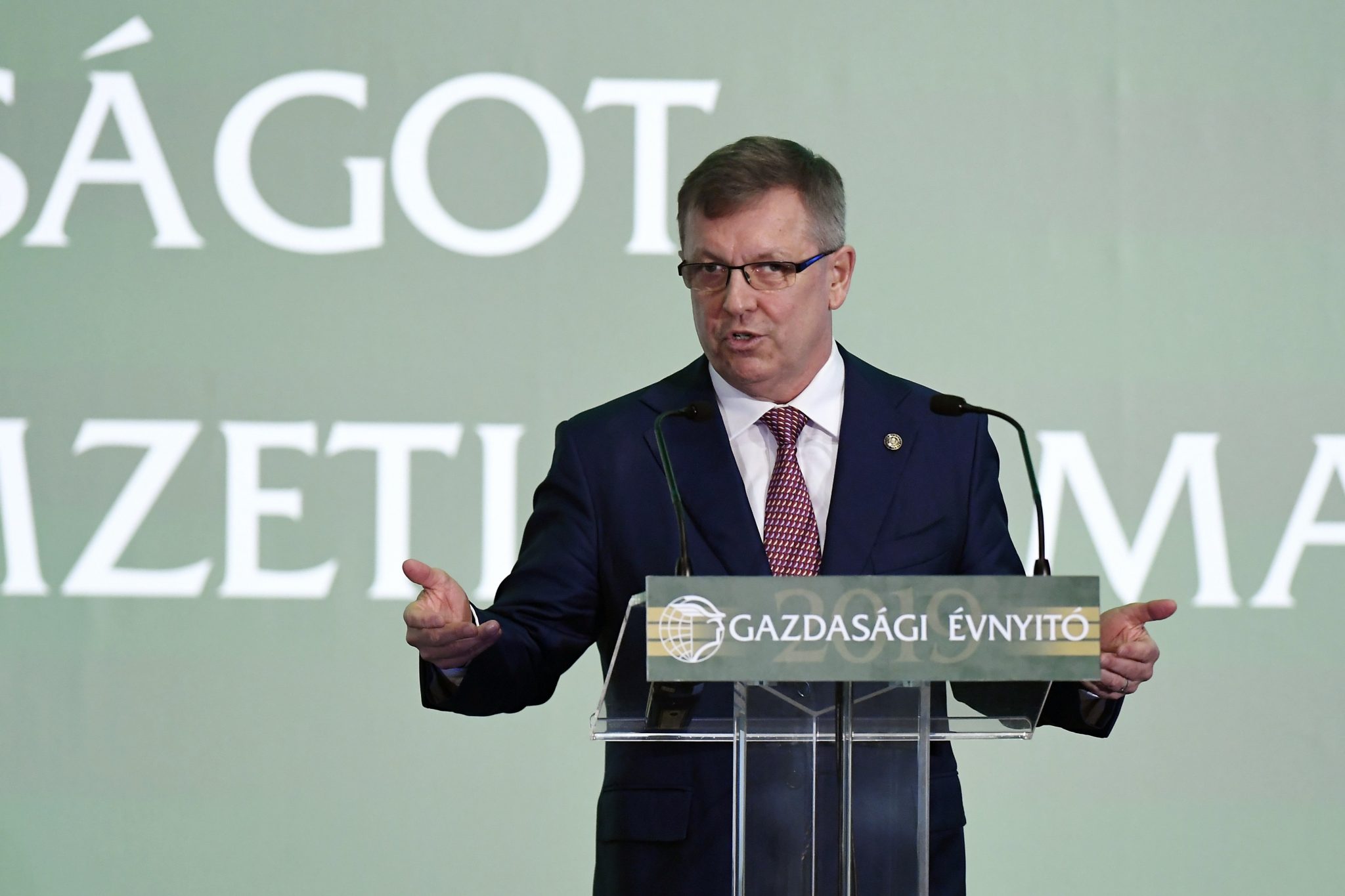
NBH policy makers had kept the base rate on hold at 0.60 percent since last summer, but inflation reached 5.1 percent in both April and May.Continue reading

The Monetary Council of the National Bank of Hungary (NBH) decided for the second time in just over a month to raise the central bank base rate by 30 basis points to 1.20% at its monthly policy meeting on Tuesday. As NBH expects inflation to normalize only by the middle of next year, it is highly unlikely to be the last time that the central bank hikes its base rate. The decision led to a slight strengthening of Hungary’s national currency, the forint, but the momentum quickly faded by the end of the day.
There are fundamental inflation risks in the Hungarian economy, which is why the NBH is conducting a pre-emptive and decisive cycle of interest rate hikes, said Barnabás Virág, Deputy Governor of the National Bank of Hungary, at a press conference on Tuesday after the Monetary Council announced the increase of the central bank base rate by another 30 basis points. Together with the 30 bp increase in June, this means that the interest rate has doubled from 0.6% to 1.2% in just over a month.
Even though the base rate has not been this high for more than five years, the central bank’s decision came as no surprise.

NBH policy makers had kept the base rate on hold at 0.60 percent since last summer, but inflation reached 5.1 percent in both April and May.Continue reading
Despite NBH’s recent attempts to drag inflation back down to within its tolerance band, consumer prices were on average 5.3 percent higher in June than a year earlier, and rose by an average of 0.6 percent in just over a month. This means that even this year’s April and May figures, the highest in nine years, were topped last month.
According to a recent datasheet by Eurostat, Hungary’s annual inflation rate is the highest in the whole European Union.

ING Bank chief analyst Péter Virovácz said inflation in June was significantly higher than expected by the NBH which means there is a higher chance that in July the central bank raises its base rate.Continue reading
The Deputy Governor of the NBH also noted that the Monetary Council had unanimously decided in favor of a 0.3 percentage point increase.
The NBH remains committed to price stability and the aim is to anchor inflation expectations, which is why it is necessary to continue the cycle of interest rate hikes. Interest rate increases will continue until inflation risks become more balanced, Virág said.
The bank also raised the collateralized loan rate by 30 basis points to 2.15%, and its overnight deposit rate by 30 basis points to 0.25% which marks the end of the five-year period of negative interest rates in Hungary.
The rate hike gave some boost to the forint, which was weakened in recent days due to, among other things, the pandemic, the concerns over a fourth Covid wave, and the debates surrounding the post-Covid recovery package the EU is trying to withhold from Hungary. The NBH’s base rate increase led the forint to strengthen by 0.5%. falling below 360 against the euro. However, this boost did not seem to last long, since by Tuesday night the improving trend stopped.

The Monetary Council will continue the cycle of interest rate hikes until the outlook for inflation stabilizes around the central bank target.Continue reading
The National Bank’s target has long been to keep Hungary’s inflation at around 3%, however, the rate of increase will unlikely to fall below four percent this year, thus further hikes are sure to come; the next one, according to analysts, is expected in September.
The base rate increase and its level did not come as a surprise, experts told news wire MTI after the Monetary Council’s decision.
The macroeconomic analyst at pro-government Századvég Institute believes that another interest rate hike could be expected due to high (above 5%) inflation. Dániel Molnár says that the extent and pace of further tightening would depend on how the economic situation evolves, with another adjustment expected in September.
According to the senior analyst at Takarékbank, a tightening cycle has started until the beginning of 2022, so further rate hikes are likely. Gergely Suppan expects a base rate of 1.50% at the end of the year and 1.75% next year.
Zoltán Varga, an analyst at Equilor Investment Bank, said inflationary pressures could ease in the third quarter, and the central bank expects inflation to remain within the tolerance band next year.
In the featured photo illustration: NBH Governor György Matolcsy. Photo by Szilárd Koszticsák/MTI
Array
(
[1536x1536] => Array
(
[width] => 1536
[height] => 1536
[crop] =>
)
[2048x2048] => Array
(
[width] => 2048
[height] => 2048
[crop] =>
)
)